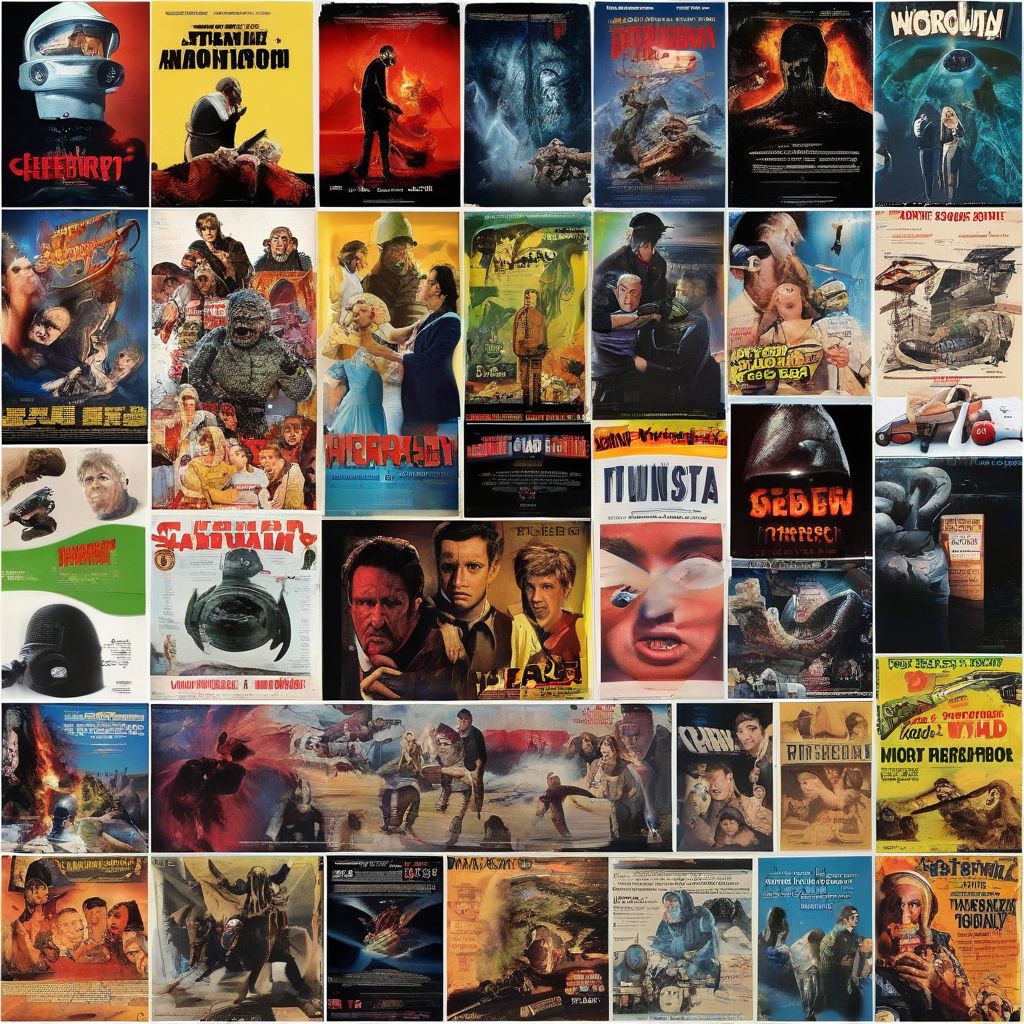Imagine watching a Quentin Tarantino film. You’d likely expect sharp dialogue, stylized violence, and a non-linear plot. Now, picture a Wes Anderson movie. You might envision quirky characters, symmetrical framing, and a pastel color palette. These expectations, deeply ingrained in our cinematic understanding, highlight the powerful role genre plays in a director’s filmography.
More Than Just a Label: Genre as a Framework
Genre, often perceived as a simple categorization tool, is much more than just a label slapped onto a film. It’s a framework, a set of conventions and expectations that inform not only the story being told but also the director’s artistic choices. From cinematography and editing to music and character archetypes, genre acts as a guiding force, shaping the very DNA of a film.
Consider the horror genre. Directors utilize specific cinematic techniques, like eerie sound design and jarring jump scares, to evoke fear and suspense in the audience. Similarly, romantic comedies employ witty banter, charming meet-cutes, and heartwarming resolutions to create a sense of lightheartedness and emotional connection.
 Romantic Comedy Scene
Romantic Comedy Scene
The Director’s Playground: Genre as a Tool for Exploration
While genre provides a framework, it doesn’t stifle a director’s creativity. On the contrary, it often serves as a playground for experimentation and innovation. Directors can choose to adhere to genre conventions, subvert them, or blend them to craft unique cinematic experiences.
Think of the Coen brothers. Their filmography spans a diverse range of genres, from the neo-noir thriller “Blood Simple” to the quirky comedy “The Big Lebowski.” However, their distinct stylistic fingerprints, characterized by dark humor, unconventional characters, and a penchant for the absurd, remain consistent across their work, regardless of genre.
Auteur Theory and Beyond: Genre as a Signature
The relationship between director and genre is central to the concept of auteur theory, which posits that a director’s personal style and thematic concerns are evident throughout their filmography, regardless of genre. While auteur theory has been debated and challenged, it highlights the undeniable influence a director’s artistic vision can have on the genres they choose to explore.
For instance, Alfred Hitchcock, the “Master of Suspense,” left an indelible mark on the thriller genre. His films, often characterized by psychological tension, voyeuristic themes, and iconic imagery, continue to influence and inspire filmmakers today.
Breaking the Mold: Genre Bending and Innovation
Some directors push the boundaries of genre even further, choosing to blend and subvert conventions to create something entirely new. Quentin Tarantino, known for his eclectic and referential style, seamlessly blends elements of crime, action, and blaxploitation cinema in “Pulp Fiction,” creating a postmodern masterpiece that defies easy categorization.
 Genre Bending Film
Genre Bending Film
The Genre Journey: Evolving Over Time
A director’s relationship with genre is rarely static. It’s an evolving journey, influenced by personal growth, artistic aspirations, and even audience reception. Some directors may choose to specialize in a particular genre, honing their craft and becoming synonymous with it. Others might experiment with different genres throughout their careers, seeking new challenges and exploring uncharted creative territory.
Conclusion: A Tapestry of Influences
The role of genre in a director’s filmography is complex and multifaceted. It’s a framework, a tool, and sometimes even a signature, shaping the director’s artistic choices and influencing the audience’s expectations. From adhering to conventions to subverting them, directors navigate the world of genre in diverse and fascinating ways, ultimately contributing to the rich tapestry of cinematic storytelling.
So, the next time you watch a film, take a moment to consider the genre and the director’s hand in shaping your cinematic experience. You might be surprised by the depth and nuance you discover.
What are your favorite examples of directors who masterfully navigate genre? Share your thoughts in the comments below!
[amazon bestseller=”genre-studies-film”]
